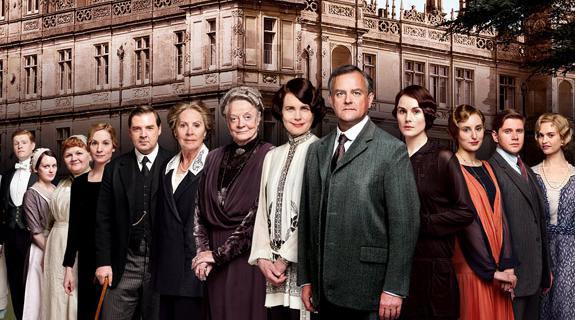It’s official: Downton Abbey will wrap for good after its upcoming sixth season.
Thursday’s announcement from PBS and producer Carnival Films finally confirmed what many fans and industry watchers had suspected for some time. Back in January, PBS boss Paula Kerger refused to discuss the series’ future beyond the sixth season during her TCA Winter Press Tour appearance.
Now that the countdown to a finale has begun, Kerger and her team are facing a critical moment for the PBS brand: building on the legacy of the the top drama series in the history of the public broadcaster.
The list of records and awards racked up in its first five seasons underscores just how much of a game-changer it was for Brand PBS. As Variety points out, Downton Abbey is:
“the most popular series in ‘Masterpiece’s’ 44-year history and a consistent ratings performer, with season five averaging 12.9 million viewers over its nine-week run, with over 12.6 million streams of full episodes digitally. The series has earned 51 Emmy nominations to date, winning 11, along with three Golden Globes, three Screen Actors Guild Awards, a Producers Guild Award, and three BAFTAs.”
PBS had already used Downton‘s popularity earlier this year to expand its “Masterpiece” programming block by 20 additional hours, including ITV drama Grantchester. PBS execs on Thursday called Downton Abbey a “game-changer” for the storied “Masterpiece” franchise.
Fortunately for PBS, several additional projects in the pipeline are poised to build on Downton‘s success.
First up: the U.S. premiere of British import Wolf Hall on April 5, which could deliver PBS its Next Big Thing even before the lights go out at the Abbey.
The six-part miniseries is based on Hilary Mantel’s bestseller of the same name, and its sequel Bring Up the Bodies. Damian Lewis (Homeland) stars as King Henry VIII—aka The One Who Beheaded All Those Wives. Tony Award-winner Mark Rylance (Twelfth Night) plays the king’s consigliere, Thomas Cromwell. The miniseries is somewhat of a Tudor-era House of Cards:
“Wolf Hall follows the complex machinations and back room dealings of this pragmatic and accomplished power broker – from humble beginnings and with an enigmatic past – who must serve king and country while dealing with deadly political intrigue.”
Looking at the U.K. reviews, you’d think that PBS had a hit on its hands: British critics heaped praise on the miniseries after its January debut on BBC 2, They called it “masterful,” “intelligent,” “sumptuous,” and the Best Drama of 2015.
Early signs indicate American critics agree.
British viewers, on the other hand, may have raised some warning flags for PBS: 3.89 million viewers tuned in and gave BBC Two its best original series debut in a decade. But Wolf Hall lost one million viewers ahead of episode two, and the ratings never quite recovered. Viewers indicated they found the storyline confusing, and complained about scenes that were filmed in candlelight in the name of authenticity. Still, a second season is reportedly in the works.
Beyond Wolf Hall, PBS is signaling that its future strategy will center on weaning itself off the steady stream of British imports that have populated its primetime schedule for decades.
At the same press appearance where she refused to talk about Downton’s future, Kerger announced that PBS was producing its first original drama series in the U.S. in a decade.
Calling the project a “really big deal for us,” Kerger revealed that the untitled six-part series by Ridley Scott would center on a group of Virginia nurses during the Civil War.
There’s no word yet on when the series debut and whether it will directly fill the hole in the lineup left by Downton Abbey.
But PBS is already positioning its new U.S.-based drama as the heir to another record-breaking series: Ken Burns’ The Civil War.
The nine-part documentary attracted 40 million viewers when it was first broadcast in 1990, and remains the most-watched program in PBS history.
“Being able to tie back to that great story and reinterpret a piece of that through a drama is absolutely perfect,” Kerger said as she announced the project in January.
It should be noted that PBS is also talking about it’s post-Downton future with… Downton Abbey creator Julian Fellowes.
“Masterpiece” boss Rebecca Eaton confirmed the talks to trade site Deadline, but declined to elaborate on future plans. Deadline reported that Kerger joined Eaton on the call to assure that PBS wasn’t “in a panic about the coming end of its most popular drama series in its history and a show that single-handedly made public broadcasting sexy again.”
Tags:













































__twocolumncontent.jpg)











